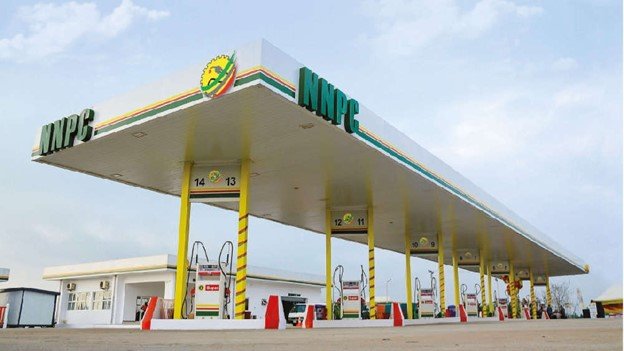NNPC Ltd has stated that Nigeria faces a threat to sustainable fuel supply as a result of financial strain on the company.
Also read; Zenith Bank Plc to pay ₦1.00 interim dividend for H1 2024
In a statement signed by the Chief Corporate Communications Officer, Olufemi Soneye, NNPC acknowledged recent reports in national newspapers regarding the company’s significant debt to petrol suppliers.
The statement on X (formerly Twitter) attributed the financial strain to PMS supply costs, which is now impacting supply sustainability.
This comes not long after the company revealed a record-breaking net profit of ₦3.297 trillion for the financial year ending December 2023, marking a significant increase of ₦749 billion, or 28%, from the ₦2.548 trillion profit reported for 2022. The company had also declared a substantial final dividend of ₦2.1 trillion.
As per the Petroleum Industry Act (PIA), NNPC Ltd is the country’s supplier of last resort, to ensure national energy security. In the statement seen by Investogist, the company stated that it is actively collaborating with relevant government agencies and other stakeholders to maintain a consistent supply of petroleum products nationwide.
Reuters reported early July that the NNPC’s debt to oil traders had surpassed $6 billion, doubling since early April, as the company struggled to cover the gap between fixed pump prices and global fuel costs. The NNPC declined to comment at that time.
On his inauguration, President Tinubu announced the removal of fuel subsidy, which resulted in a sharp rise of pump prices of PMS. NNPC Ltd however capped the price it sold the product as cost of living continued to rise.
With the naira depreciation and a rise in international fuel prices, NNPC stated losing money on every litre of fuel sold in the country less than a year after the famous “subsidy is gone” speech of the President.
Reuters in its July report stated that NNPC was still to pay for January imports. Under contract terms, NNPC is meant to pay within 90 days of delivery.
“The only reason traders are putting up with it is the $250,000 a month (per cargo) for late payment compensation,” one industry source said.
At least two suppliers already stopped participating in recent tenders after hitting self-imposed debt exposure limits to Nigeria, the sources said, meaning they will not send more gasoline until they receive payments.
As a result, Nigeria’s tenders to buy gasoline in June and July were smaller, traders said. NNPC were to import via tender about 850,000 tonnes in July, two of the sources said, down from the typical 1 million tonnes in previous months.
Nigeria has four refineries that are not functional, thus have to rely on importation of virtually all its fuel.
The newly opened 650,000 barrel-per-day Dangote refinery has not yet produced PMS for the local market, having missed multiple self-imposed deadlines for the supply of PMS to the market.
NNPC has also missed multiple self-imposed deadlines for its refineries to commence commercial supply of fuel.
The last date given by NNPC for one of its refineries in Port Harcourt to commence commercial supply of fuel was August 31st.
Nnamdi Maduakor is a Writer, Investor and Entrepreneur
